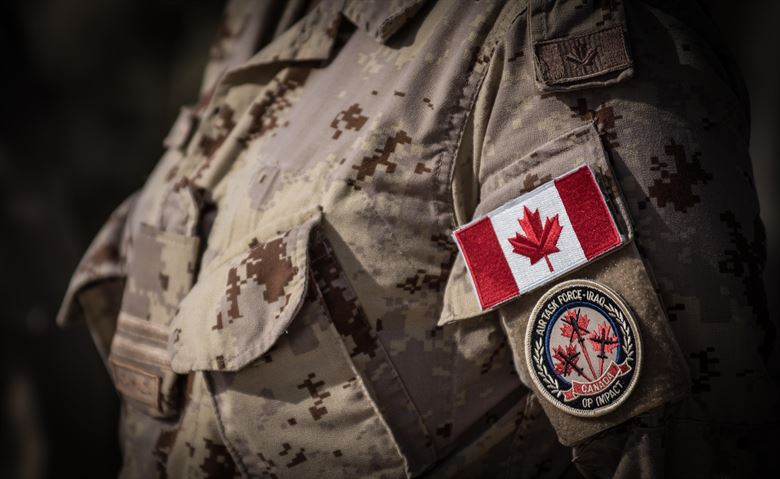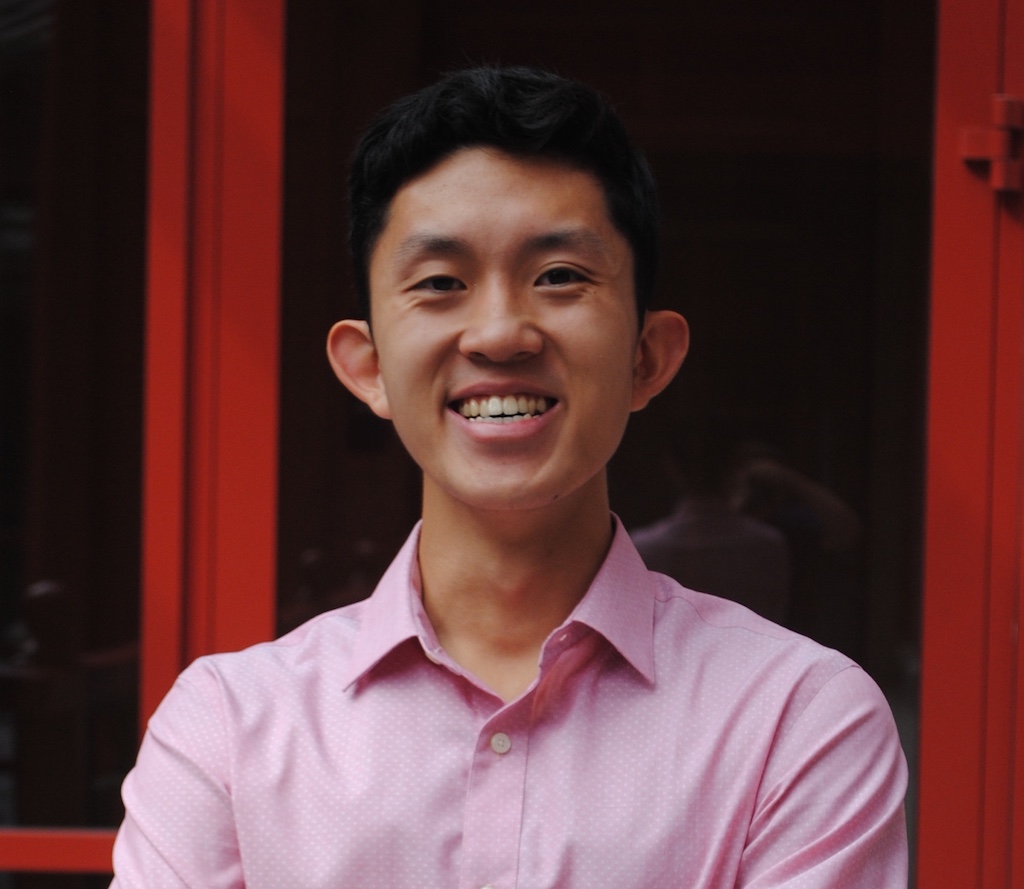Canada to Lead NATO Mission Iraq for Another Year
At the end of June, Canadian Defense Minister Harjit Sajjan announced that his country will continue to command NATO Mission Iraq (NMI) until November 2020, rather than handing off leadership to another country in November of this year, as had been previously planned.

Published by The Lawfare Institute
in Cooperation With

At the end of June, Canadian Defense Minister Harjit Sajjan announced that his country will continue to command NATO Mission Iraq (NMI) until November 2020, rather than handing off leadership to another country in November of this year, as had been previously planned. NMI began its work on October 31, 2018, after NATO leaders announced the formation of the mission at a July 2018 summit in Brussels. NMI is a “non-combat training and capacity building mission” and is designed to “train the trainers”—under NMI, NATO personnel train Iraqi military instructors in various areas such as countering improvised explosive devices and civil-military relations. The mission comprises 580 NATO personnel, including some 250 Canadian Armed Forces (CAF) members, and is based in Baghdad. NATO personnel also advise officials within the Iraqi Ministry of Defense and the Office of the National Security Adviser.
Canadian Maj. Gen. Dany Fortin has led NMI since its inception. The Canadian presence consists of four elements: a force protection element, headquarters staff, advisers and trainers who work with Iraqi military trainers, and an in-theater tactical transport unit made up of three CH-146 Griffon helicopters. Under the extension, the CAF is not set to increase the number of deployed personnel. NMI will see a command change, however, with Brig. Gen. Jennie Carignan, soon to be promoted, to take over command from Fortin. As the CBC News reports, Carignan has forged a reputation as a “trailblazing female officer.” She led a task force of engineers in Kandahar Province, Afghanistan, in 2010 and is one of “fewer than a dozen women currently serving at the general officer rank.”
Canada’s contribution to NMI is but one facet of its operations in the region. In total, Canada has 850 personnel stationed in the Middle East as part of Operation Impact. Impact was originally conceived as Canada’s contribution to the Global Coalition’s operations against the Islamic State in Iraq and Syria (IS) but is now geared primarily toward improving the capabilities of the Iraqi government’s security forces. The Canadian contribution to the fight against IS began under Prime Minister Stephen Harper’s administration, with Canadian CF-188 Hornet jets commencing airstrikes on IS targets in late 2014. Prime Minister Justin Trudeau decided to pull Canada’s fighter jets from the region, with the CAF ceasing airstrike operations in March 2016. The oppositional Conservative Party sharply criticized Trudeau’s decision to pull the Hornets, but since then, it has become evident that the Trudeau government’s contribution to coalition efforts in Iraq has been sustained and serious.
Since 2016, Canadian personnel not only have provided advice and training but also have been involved in firefights with IS militants. In November 2016, Maj. Gen. Mike Rouleau, head of Canadian Special Operations Forces Command, revealed that Canadian special forces operators who were training Kurdish peshmerga soldiers in northern Iraq had taken part in a “substantial” number of direct engagements with IS fighters as part of the effort to retake Mosul. Canada ended its assistance and training mission to the peshmerga in October 2017 after an outbreak of fighting between Iraqi government and peshmerga over the control of territory in the north. Kurdish officials have continued to call on Ottawa to resume training of their security forces.
IS continues to represent a potent threat. With the fall of Rawa in late 2017, IS lost its last stronghold in Iraq. And in March of this year, Kurdish and Arab soldiers retook Baghouz, IS’s last stronghold in Syria. The Canadian Security Intelligence Service (CSIS), however, in its recently released public report, notes that although IS “has lost significant amounts of physical territory … it has now shifted … to increased calls for retaliation, and [the] CSIS assess[es] that Daesh will continue its efforts to inspire … operations abroad.” IS continues to pose a threat on the ground in Iraq too. As CBC News reports, Canada continues to maintain a contingent of special forces troops in northern Iraq to help local security forces destroy “pockets of IS extremists” who are conducting a “a guerilla-style campaign.” Those Canadian troops could well come under attack from IS militants.
Two Committees Urge Ottawa to Revitalize Canada’s Arctic Policy
Last month, the Special Senate Committee on the Arctic released a report, entitled “Northern Lights: A Wake-Up Call for the Future of Canada.” The report, every bit as stirring as its title might suggest, argued that “Canada has long neglected the Arctic by leaving its nation-building project unfinished.” The committee took a broad view of Arctic development and examined four themes: economics and infrastructure, cultural development, environmental protections, and the Arctic in global context. The Arctic’s residents—some 113,000 people, spread out over 40 percent of Canada’s land mass—face problems related to all four of these themes. These problems range from “food security to access to education and health care, the high cost of living and aging or non-existent infrastructure.”
Many of the recommendations are commonsensical and focus on reforms at the local level: The government should support the development of “multi-use community centers” and increase funding for basic adult education in the Arctic, for example. Many others are ambitious, however: “Northern Lights” recommends that the Canadian government establish a forum outside of the Arctic Council dedicated to Arctic security issues, a Pan-Arctic Infrastructure Bank and an Arctic-wide broadband telecommunications action plan. All throughout, the senators stressed that development “must be driven ‘in the North, by the North, for the North.’”
In many respects, “Northern Lights” resembles the House of Commons’s Standing Committee on Foreign Affairs and International Development (FAAE) April 2019 report on the Arctic. Of course, the FAAE primarily addressed “matters of geopolitics, international law and international security” in its report. The FAAE recommended, for example, that the Coast Guard upgrade its icebreaking fleet and that the government set a “time-bound goal to complete its mapping” of Arctic marine corridors. The committee even noted that it did not “have the mandate to address … important issues … such as housing policy, nutrition, poverty and mental health.” Still, like the Special Senate Committee, the FAAE took a holistic view of Arctic security, touching on issues as varied as energy provision in the Arctic and Indigenous participation in the Arctic Council. The committee concluded that sovereignty is not simply a matter of defense policy but is also “realized by supporting strong communities and empowering Arctic peoples.”
Both reports are geared toward informing the government’s efforts to develop a new Arctic policy. Trudeau announced in late 2016 that his government would develop a new Arctic policy framework, which would replace Canada’s 2009 Northern Strategy and 2010 Arctic foreign policy statement—two Harper-era documents. Of course, Trudeau’s Arctic policy thus far has built on Harper’s in several key respects. Harper pursued several key security and development projects in the Arctic, including the construction of the Inuvik-Tuktoyaktuk Highway; Nanisivik Naval Station; and the Canadian High Arctic Research Station in Cambridge Bay, Nunavut. Trudeau has similarly focused on security aspects of Arctic policy. Notably, the prime minister has committed CA$15.7 billion to the renewal of the Canadian Coast Guard’s fleet. As part of that renewal, the Coast Guard will gain two Arctic and Offshore Patrol Ships (AOPS). With the Royal Canadian Navy set to receive six AOPS, the government will be in a better position to patrol Arctic waters, so long as it receives the ships in a timely fashion.
As both the House and Senate committee reports argue, however, future Canadian policy on the Arctic will need to take a much broader view of sovereignty, one focused as much on issues like education and housing as on naval facilities and search-and-rescue capabilities. Only by pursuing a balanced and locally rooted development strategy will the government prove capable of protecting the “true North strong and free.”
In Other News
- Foreign Affairs Minister Chrystia Freeland and Defense Minister Sajjan announced on June 14 that the Canadian peacekeepers deployed in Mali in support of the UN will continue aeromedical operations until August 31. Last month’s column focused on the government’s initial decision to end aeromedical operations on July 31 and on sharp criticism of that policy by members of Canada’s New Democratic Party. Ending operations on July 31 would have forced the UN to rely on private contractors to provide aeromedical support. Still, as Bruce Campion-Smith has noted in the Toronto Star, the Romanian Armed Forces, who will take over from the Canadians, are “not expected to have their own operation ready until October.” Thus, even with the announced extension, the Canadian government’s policy could well leave the UN with a capability gap.
- Murray Brewster of CBC has reported that Vice Adm. Mark Norman has “reached a settlement with the federal government and will retire from the military.” The Globe and Mail had earlier reported that Norman had met with Chief of the Defense Staff Gen. Jonathan Vance to discuss coming back to the military as vice chief of the defense staff. Last month’s column outlined the Mark Norman saga. In May, the Public Prosecution Service withdrew its breach of trust charge against Norman, accused of leaking information related to a shipbuilding deal. The details of the government’s settlement remain unclear. Brewster has reported that the Department of National Defense officially refused to acknowledge “the existence of [a] non-disclosure agreement” with Norman as part of the settlement.
- The Standing Committee on National Defense (NDDN) has released a report, entitled “Improving Diversity and Inclusion in the Canadian Armed Forces.” The report concluded that there was an urgent need for the CAF to do more to “promote inclusion and respect for diversity.” The committee made a number of recommendations, proposing, for example, that the CAF “explore options for holding senior leadership accountable for improving the representation of women and diverse groups.” The report affirmed the “benefits of diversity for operational effectiveness.”




.png?sfvrsn=4156d4f8_5)
